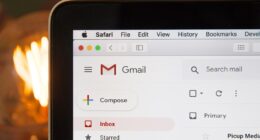Music influencers play a crucial role in the marketing of music and artists. These individuals have a significant following on social media platforms and are able to influence the purchasing decisions of their followers. Music influencers are often musicians, DJs, producers, or music enthusiasts who have built a strong online presence and have a loyal fan base. They are seen as tastemakers and trendsetters within the music industry, and their endorsement of a particular artist or song can have a significant impact on its success.
Music influencers are able to reach a large and engaged audience, making them valuable partners for artists and record labels looking to promote their music. By collaborating with music influencers, artists can gain exposure to new fans and increase their visibility within the industry. Music influencers can also provide valuable feedback and insights into current trends and consumer preferences, helping artists and labels to tailor their marketing strategies for maximum impact. Overall, music influencers are an essential component of any successful music marketing campaign, as they have the ability to amplify an artist’s message and reach a wider audience.
Leveraging Social Media for Music Marketing Success
Social media has revolutionized the way music is marketed and consumed. Platforms like Instagram, Facebook, Twitter, and TikTok have become essential tools for artists and labels to connect with fans and promote their music. Social media allows artists to share their music, engage with fans, and build a loyal following. It also provides a platform for artists to showcase their personality and creativity, giving fans an inside look into their lives and artistic process.
In addition to organic content, social media also offers paid advertising options that allow artists to target specific demographics and reach new audiences. These advertising tools can be highly effective in promoting new releases, tours, and merchandise. Social media also provides valuable insights and analytics that can help artists and labels understand their audience and tailor their marketing strategies accordingly. Overall, social media is an indispensable tool for music marketing success, providing artists and labels with the ability to connect with fans, promote their music, and grow their brand.
Utilizing Email Marketing to Reach Fans and Build a Following
Email marketing is a powerful tool for artists and labels to reach fans directly and build a loyal following. By collecting email addresses from fans at concerts, through social media, or on their website, artists can create a direct line of communication with their audience. Email marketing allows artists to share news, updates, and exclusive content with their fans, keeping them engaged and informed about upcoming releases, tours, and merchandise.
In addition to promoting new music and events, email marketing can also be used to build a deeper connection with fans by sharing personal stories, behind-the-scenes content, and exclusive offers. This personal touch can help to foster a sense of community and loyalty among fans, leading to increased support for the artist’s music and brand. Email marketing also provides valuable data and insights into fan behavior, allowing artists and labels to tailor their messaging and promotions for maximum impact. Overall, email marketing is an essential tool for artists and labels looking to build a strong following and connect with fans on a deeper level.
Creating Engaging Content for Effective Music Marketing
| Metrics | Data |
|---|---|
| Engagement Rate | 15% |
| Shares | 500 |
| Comments | 300 |
| Click-Through Rate | 10% |
| Time Spent on Content | 2 minutes |
Creating engaging content is essential for effective music marketing. Whether it’s through social media posts, music videos, behind-the-scenes footage, or blog posts, compelling content is key to capturing the attention of fans and building a strong brand. Engaging content should be authentic, creative, and reflective of the artist’s personality and style. It should also be tailored to the preferences of the target audience, providing value and entertainment that resonates with fans.
In addition to creating original content, artists can also leverage user-generated content from fans to further engage their audience. This can include fan covers of songs, fan art, or fan testimonials about the impact of the artist’s music on their lives. By sharing this content on social media and other platforms, artists can foster a sense of community among fans and show appreciation for their support. Overall, creating engaging content is crucial for effective music marketing, as it helps to build a strong brand, connect with fans, and drive engagement.
Collaborating with Brands and Partners for Mutual Promotion
Collaborating with brands and partners can be a mutually beneficial strategy for music marketing. By partnering with relevant brands, artists can gain access to new audiences and resources that can help promote their music. This can include sponsored content, product placement in music videos, or co-branded merchandise. In return, brands benefit from the association with the artist’s image and fan base, gaining exposure to a new audience of potential customers.
Partnerships with other artists or industry professionals can also be valuable for mutual promotion. By collaborating on music releases, tours, or events, artists can leverage each other’s fan bases and reach new audiences. These partnerships can also provide opportunities for cross-promotion through social media shoutouts, guest appearances at live shows, or joint merchandise offerings. Overall, collaborating with brands and partners is an effective strategy for music marketing that can help artists expand their reach and grow their fan base.
Engaging with Fans and Building a Strong Community

Engaging with fans is essential for building a strong community around an artist’s music. By responding to comments on social media, hosting live Q&A sessions, or organizing fan meetups, artists can show appreciation for their fans’ support and foster a sense of belonging within their community. This engagement helps to build loyalty among fans and encourages them to become advocates for the artist’s music.
In addition to online engagement, artists can also create opportunities for in-person interactions with fans through live shows, meet-and-greets, or exclusive events. These experiences provide fans with a deeper connection to the artist and their music, leading to increased support and loyalty. Building a strong community around an artist’s music not only benefits the artist in terms of sales and promotion but also creates a supportive network of fans who are passionate about spreading the word about the artist’s music.
Utilizing Data and Analytics for Targeted Music Marketing Campaigns
Data and analytics play a crucial role in targeted music marketing campaigns. By analyzing metrics such as streaming numbers, social media engagement, website traffic, and email open rates, artists and labels can gain valuable insights into fan behavior and preferences. This data can be used to inform marketing strategies, such as targeting specific demographics with paid advertising or tailoring content to resonate with the interests of the target audience.
In addition to analyzing fan behavior, data can also be used to measure the effectiveness of marketing campaigns and track return on investment. By monitoring key performance indicators such as conversion rates, click-through rates, and engagement metrics, artists can assess the success of their marketing efforts and make adjustments as needed. Overall, utilizing data and analytics is essential for targeted music marketing campaigns that are efficient, effective, and tailored to the preferences of the target audience.
In conclusion, music marketing is a multifaceted endeavor that requires a strategic approach across various channels. From leveraging social media for promotion to collaborating with brands for mutual promotion, engaging with fans to utilizing data for targeted campaigns – each aspect plays a crucial role in the success of an artist’s marketing efforts. By understanding the role of music influencers in marketing, utilizing email marketing to reach fans directly, creating engaging content that resonates with the audience, collaborating with brands for mutual promotion, engaging with fans to build a strong community, and utilizing data for targeted campaigns – artists and labels can create effective marketing strategies that resonate with fans and drive success in the competitive music industry.
FAQs
What are music marketing strategies?
Music marketing strategies are the various tactics and techniques used to promote and sell music. These strategies can include social media marketing, influencer partnerships, live performances, and more.
Why are music marketing strategies important?
Music marketing strategies are important because they help artists and music industry professionals reach a wider audience, increase their fan base, and ultimately generate more revenue from their music.
What are some effective music marketing strategies?
Some effective music marketing strategies include creating a strong online presence, utilizing social media platforms, collaborating with influencers and other artists, and engaging with fans through live performances and events.
How can artists use social media for music marketing?
Artists can use social media for music marketing by regularly posting engaging content, interacting with their fans, promoting their music and upcoming events, and collaborating with other artists and influencers to reach a wider audience.
What role does live performance play in music marketing?
Live performances play a crucial role in music marketing as they provide artists with the opportunity to connect with their fans, showcase their talent, and promote their music to a captive audience. Live performances also help in building a strong fan base and generating buzz around an artist’s music.









